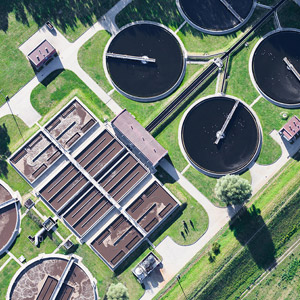 “Biosolids” is a generic name for several types of biological waste; municipal wastewater sludge and residues from agriculture and foodstuff industry are the main ones. Although generated as waste, biosolids contain valuable organic matter. Therefore big volumes of these materials are reused in agriculture, forestry and landscaping in full alignment with the European Circular economy concept. Stabilisation and hygienisation are compulsory for biosolids prior to their reuse.
“Biosolids” is a generic name for several types of biological waste; municipal wastewater sludge and residues from agriculture and foodstuff industry are the main ones. Although generated as waste, biosolids contain valuable organic matter. Therefore big volumes of these materials are reused in agriculture, forestry and landscaping in full alignment with the European Circular economy concept. Stabilisation and hygienisation are compulsory for biosolids prior to their reuse.
Challenges
Biological sludge is an inevitable result of municipal wastewater treatment, prescribed by the European legislation. The biological sludge is thickened and dewatered in the wastewater plant but cannot be reused directly because of:
- Bio-degradability resulting in odour generation and organic acids release (biological sludge stabilisation is not standard in all wastewater plants)
- Presence of pathogens harmful for human health and environment
Untreated animal by-products have similar hazardous properties.
Biological stabilisation and hygienisation are the minimum treatment steps enabling safe reuse of biosolids in agriculture or similar branches.
Solutions
Lime can provide multiple effects in biosolids treatment.
- Flocculation of liquid sludge by common effect of lime and iron or aluminium salts; therefore it is widely used to intensify the dewatering processes.
- Efficiency increase in most types of dewatering equipment thanks to its mineral load effect
- Pathogens devitalising as a result of exothermic quicklime hydration.
- Long-term odour reduction thanks to high pH, keeping odour substances in a dissociated form
PRODUCTS
Carmeuse developed the BIOCALCO product range to fit main processes in biosolids treatment and to maximise the multiple effect of liming in this
PROCESSES
- Complex biosolids trtmt. With lime
- Codecal process
